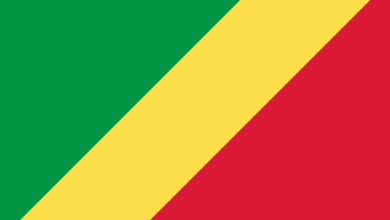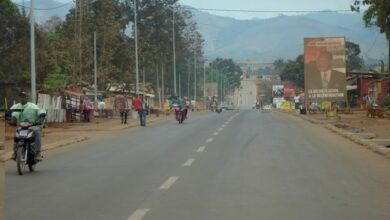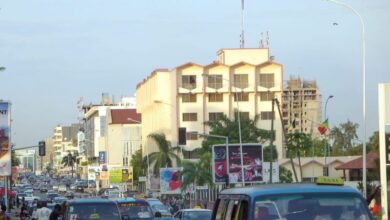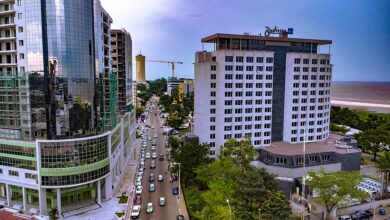Republic of Congo
-
Republic of Congo

The National Flag of the Republic of the Congo
The national flag of the Republic of the Congo, known as the “drapeau de la république du Congo” in French, features a yellow diagonal band that divides the flag diagonally from the lower hoist-side corner. The upper triangle is green, while the lower triangle is red. This design was adopted in 1959, replacing the French Tricolour, and served as the flag of the Republic of the Congo until 1970. At…
-

La Congolaise
“The Congolese” (Kongo: “Besi Kôngo”), also known as “La Congolaise,” serves as the official national anthem of the Republic of the Congo. Its adoption took place in 1959, following the country’s independence from France. However, it was briefly replaced by “Les Trois Glorieuses” in 1969 before being reinstated in 1991. The talented collaboration of Jacques Tondra and Georges Kibanghi resulted in profound lyrics, while the music was skillfully composed by…
-

Dolisie
Dolisie, situated in the Niari Valley of the Republic of the Congo, derives its name from Albert Dolisie, lieutenant to Pierre Savorgnan de Brazza. In 1975, the city’s name was changed to Loubomo but was later restored to its original name in 1991. Dolisie earned the affectionate nickname of “green gold”. History The origins of Dolisie trace back to its establishment as a vital station along the illustrious Congo-Ocean Railway.…
-

Pointe-Noire
Pointe-Noire is a town located in the Republic of Congo (Congo Brazzaville) and serves as the main port of the country. It is situated at the end of the Congo-Ocean Railway on the Atlantic coast, approximately 95 miles (150 km) north of the Congo River and 245 miles (394 km) west of Brazzaville, which is the national capital. From 1950 to 1958, Pointe-Noire held the position of capital of the…
-

Brazzaville
Brazzaville, situated on the north bank of the Congo River below Malebo (Stanley) Pool, is the capital city, commune, and river port of the Republic of Congo. It also served as the former capital of French Equatorial Africa. Established in 1883, Brazzaville began as the village of Ntamo, which was “purchased” by the French and transformed into a European administrative and residential hub. Until the early 1960s, the city’s centre…